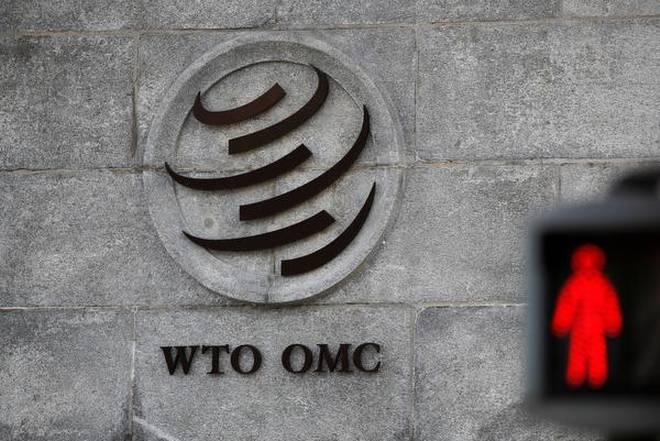WTO Wants India to End Exports Subsidy, Will Modi Government Comply?

Image Courtesy: The Hindu
The Modi-led Bharatiya Janata Party (BJP) government is now facing pressure from the World Trade Organisation (WTO), based on a complaint by the United States, to withdraw subsidies meant to encourage India’s flagging industrial exports sector.
But with the Appellate Body—the highest court for trade disputes between WTO members—set to become dysfunctional in little more than a month, it remains to be seen what becomes of this diktat issued by the dispute settlement panel constituted last year.
The panel upheld a complaint initiated by US on March 14 last year against a handful of India’s export promotion schemes—claiming that the subsidies amounting annually to more than $7 billion offered under these schemes are violating the Subsidies and Countervailing Measures (SCM) agreement.
The SCM agreement has rules regarding whether or not a subsidy may be provided by a WTO member, and are invoked by its members through the dispute settlement mechanism to seek withdrawal of subsidy or measures to offset its effects.
Also watch: Flawed Global Rules in Agriculture: Need for a New Approach
In its report that was officially released on October 31, the WTO panel ruled that India needs to remove the subsidies contingent upon export performance under the following five schemes that were challenged by the US:
1) the Export Oriented Units (EOU) Scheme and Sector-Specific Schemes, including the Electronics Hardware Technology Parks (EHTP) Scheme and the Bio-Technology Parks (BTP) Scheme (the EOU/EHTP/BTP Schemes);
2) the Merchandise Exports from India Scheme (MEIS);
3) the Export Promotion Capital Goods (EPCG) Scheme;
4) the Special Economic Zones (SEZ) Scheme; and
5) the Duty-Free Imports for Exporters Scheme (DFIS)
These schemes provide for certain exemptions from, or reductions of, customs duties or taxes, or for the granting by the government of freely transferable “scrips” to be used to satisfy certain liabilities vis-à-vis the government.
While developing countries with per capita gross national product (GNP) of $1,000 per annum get an eight-year period to phase out such subsidies, the panel said India had already crossed the GNP threshold and therefore, must remove export-contingent subsidies “without delay”—within 90 days to 180 days for different schemes.
“Consultations were held on April 11, 2018, but failed to resolve the dispute,” according to the timeline of the case in the panel report.
The US officially placed the request for establishment of a panel May 17, 2018, while the panel came into existence on May 28, 2018.
And yet — as early as April 8, 2018 — The Hindu BusinessLine found out from a government insider that, “New Delhi has got cracking on identifying alternative ways to support exporters without facing challenges at the multilateral forum.”
“An informal committee has been set up under the Director General of Foreign Trade (DGFT) to look into the existing export promotion schemes. The idea is to identify the non-compatible provisions and to look for alternatives assuming that India's eight-year phase-out period argument is not accepted,” The Hindu BusinessLine quoted the government official as saying.
This, when even the first step in the dispute settlement mechanism—setting up a panel to assess the US complaint—had not been officially initiated. This ruling is part of the dispute settlement mechanism between WTO member countries.
An informal committee was set up simply for the US “questioning” (as per the news report) India’s export subsidies at the WTO.
“This is a resounding victory for the United States,” stated the US Trade Representative’s Office.
In July, India and China jointly submitted a paper to the WTO, challenging a flexibility provided to developed countries that allows them to concentrate their subsidies on certain farm products — even while India was being pressured to give up its public stockholding programmes for food security of its population, as it was considered a “trade-distorting” subsidy.
While the next step is for India to appeal against the panel ruling before the standing Appellate Body—the final arbiter for settling global trade disputes —there is a catch.
US President Donald Trump has refused to nominate new members for the seven-member committee that is likely to have four vacancies from December 11onwards. No wonder it is a resounding victory for the US!
“If India appeals this report, it would have to be pronounced upon by the appellate body. After the appellate body gives its pronouncement, only then the panel report and the appellate body report would come up for adoption by WTO membership in the Dispute Settlement Body for it to be legally liable,” said an expert on WTO issues who requested anonymity, while speaking to NewsClick.
So, if there is no Appellate Body report, then the dispute remains unsettled and the US technically cannot force India into giving up its export subsidies. Yet, there have been articles in the corporate business press analysing the plague of the exports sector and thinking up prescriptions as apart from subsidy-related issues.
So, will it appeal against the panel report? “That is the logical next step, so yes. It makes sense to do so,” said another expert.
India has to do so in little more than a month, although there is no word heard at least till the time of writing this report. The WTO panel ruling had been reported upon at least two days before the report was officially circulated.
“There are likely to be political and moral pressure tactics exerted by the Trump government, although there would be no legal backing to the ruling of the panel,” said expert Biswajit Dhar.
Therefore, in the absence of the Appellate Body—it would lack a quorum of four members as Thomas Graham is likely to resign on December 10—there will be no settlement.
Also read: WTO: India Betrayed the Farmers
So, what happens if there is no settlement? Well, as long as India does not cede its ground the way it was reported in corporate business press, our Union government does not have to self-destruct the economy, with its accompanying impact upon the 1.4 billion plus population of the country.
But, given that the US rules the WTO—and with India eager to embrace Free Trade Agreements that are destructive for non-first world countries, as what is happening with ongoing Regional Comprehensive Economic Partnership (RCEP) negotiations, among several other domains—it remains to be seen what happens.
Get the latest reports & analysis with people's perspective on Protests, movements & deep analytical videos, discussions of the current affairs in your Telegram app. Subscribe to NewsClick's Telegram channel & get Real-Time updates on stories, as they get published on our website.
























